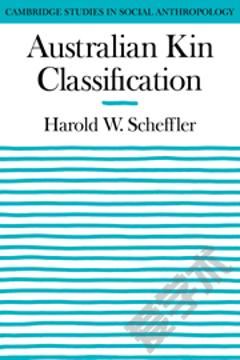Australian Kin Classification
This study aims to resolve the century-old debate about the nature of Australian aboriginal societies and the comparability of their structures with the structures of other tribal and kinship-based societies. It begins with a critical evaluation and refutation of the claims that Australians are 'ignorant of physical paternity' and therefore cannot have systems of kin classification. Professor Scheffler then demonstrates that systems of kin classification are a common feature of Australian languages and that, contrary to the theory proposed by A. R. Radcliffe-Brown and others, variation in the rules of interkin marriage does not account for variation in systems of kin classification. This was the first monographic treatment of the subject since Radcliffe-Brown's classic work, The Social Organization of the Australian Tribes, published in 1931, and is much more comprehensive and synthetic in its coverage of the range of variation in Australian systems of kin classification. It applies the concepts and methods of structural semantic analysis to a broad range of ethnographic and linguistic data, and demonstrates how they resolve one of anthropology's oldest and most perplexing theoretical puzzles.
{{comment.content}}








 京公网安备 11010802027623号
京公网安备 11010802027623号